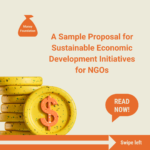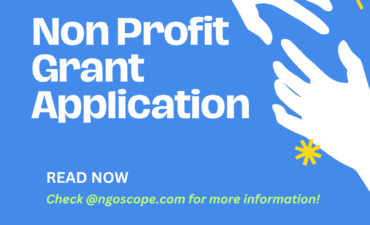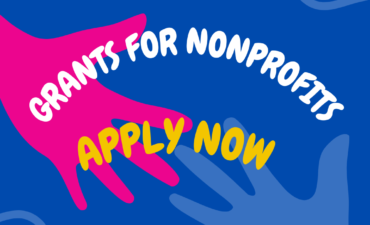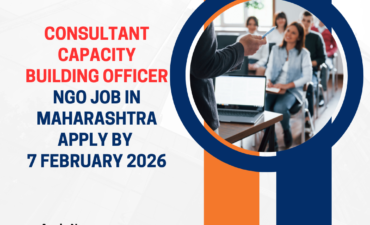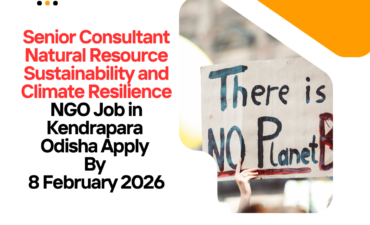Introduction: A Sample Proposal for Sustainable Economic Development Initiatives for NGOs, In the pursuit of fostering positive change and driving sustainable development, this proposal endeavors to outline a comprehensive framework for impactful economic initiatives, specifically tailored for non-governmental organizations (NGOs). Recognizing the pivotal role that NGOs play in catalyzing community development, our proposal aims to address the pressing economic challenges faced by communities, thereby laying the foundation for enduring progress.
The contemporary landscape of global development demands innovative and sustainable solutions. This proposal responds to this imperative by presenting a strategic roadmap for NGOs to engage in sustainable economic development initiatives. By aligning with the principles of environmental responsibility, social equity, and economic resilience, the proposed initiatives seek to empower communities, enhance livelihoods, and contribute to the overall well-being of the populations we aim to serve.
Amidst the backdrop of economic disparities and environmental concerns, the need for conscientious and impactful interventions has never been more pronounced. This proposal emphasizes the significance of adopting a holistic approach that not only addresses immediate economic challenges but also ensures long-term sustainability and inclusivity.
Through collaborative efforts, transparent methodologies, and community-centric strategies, this proposal envisions a future where NGOs play a pivotal role in shaping resilient and thriving economies. The subsequent sections will delve into the background, objectives, methodologies, and sustainable initiatives, offering a detailed plan for NGOs to actively contribute to sustainable economic development and foster positive transformation in the communities they serve.
Executive Summary
[A Sample Proposal for Sustainable Economic Development Initiatives for NGOs]
Introduction: In response to the urgent need for sustainable economic development, this proposal outlines a comprehensive strategy tailored for non-governmental organizations (NGOs). Focused on fostering positive change and resilience, the proposed initiatives aim to address economic challenges faced by communities while embracing principles of environmental responsibility and social equity.
Objectives: The primary goal of these initiatives is to empower communities by creating sustainable economic pathways. By implementing targeted projects, the proposal seeks to enhance livelihoods, promote inclusivity, and contribute to the overall well-being of the communities served by NGOs.
Methodology: The proposal adopts a strategic approach, beginning with a thorough needs assessment and stakeholder engagement. It emphasizes collaborative partnerships and the involvement of local communities in the decision-making process. Through a multi-faceted methodology, the initiatives are designed to be impactful, measurable, and adaptable.
Sustainable Economic Development Initiatives: Outlined are three key projects, each with its rationale, detailed activities, and anticipated impact. These initiatives span various aspects of economic development, addressing the diverse needs of the target communities.
Budget and Funding: A comprehensive budget breakdown accompanies the proposal, detailing the financial requirements for successful implementation. Additionally, potential funding sources are identified, ensuring transparency and viability in the financial plan.
Monitoring and Evaluation: The proposal incorporates robust monitoring and evaluation mechanisms, including key performance indicators and a detailed timeline for assessing project outcomes. This ensures accountability and enables adaptive management throughout the project lifecycle.
Partnerships and Collaboration: Acknowledging the importance of collaborative efforts, the proposal emphasizes partnerships with local NGOs, government agencies, and active community involvement. Such collaborations amplify the impact and sustainability of the proposed initiatives.
Capacity Building and Training: An integral component of the proposal is a focus on capacity building and training programs for community members. These initiatives aim to equip individuals with the skills and knowledge necessary for sustained economic empowerment.
Sustainability and Replicability: Emphasizing long-term viability, the proposal discusses strategies for sustainability and outlines how the initiatives can be replicated in other communities. This ensures a lasting impact beyond the initial intervention.
Conclusion: This executive summary provides a concise overview of the comprehensive proposal for sustainable economic development initiatives by NGOs. The subsequent sections offer detailed insights into the proposed projects, methodologies, and plans for fostering enduring positive change in communities.
PURPOSE OF THE PROPOSAL
[A Sample Proposal for Sustainable Economic Development Initiatives for NGOs]
The purpose of this proposal is to present a strategic framework for sustainable economic development initiatives tailored specifically for non-governmental organizations (NGOs). In a world characterized by economic disparities, environmental challenges, and social inequities, the proposal aims to address pressing issues faced by communities through targeted interventions designed to foster positive change and resilience.
- Identifying Economic Challenges:
- To conduct a thorough needs assessment and identify specific economic challenges faced by communities served by NGOs.
- To understand the root causes of economic disparities and design initiatives that directly address these challenges.
- Empowering Communities:
- To empower communities by creating sustainable economic pathways that enhances livelihoods and contributes to overall well-being.
- To prioritize initiatives that promotes inclusivity, social equity, and community engagement in the decision-making process.
- Environmental Responsibility:
- To align economic development initiatives with principles of environmental responsibility and sustainability.
- To propose projects that consider the environmental impact, ensuring a harmonious balance between economic progress and ecological well-being.
- Strategic Partnerships:
- To emphasize the importance of collaborative partnerships with local NGOs, government agencies, and active community involvement.
- To leverage collective expertise and resources to amplify the impact and sustainability of proposed economic development initiatives.
- Capacity Building and Training:
- To incorporate capacity building and training programs as integral components of the proposed initiatives.
- To equip community members with the necessary skills and knowledge for sustained economic empowerment and self-sufficiency.
- Measurable Impact:
- To establish a robust monitoring and evaluation framework with key performance indicators and a detailed timeline for assessing project outcomes.
- To ensure accountability, transparency, and the ability to adapt strategies based on real-time data and feedback.
- Long-term Viability and Replicability:
- To emphasize the importance of long-term viability, sustainability, and scalability of proposed initiatives.
- To develop strategies that not only ensures the enduring impact of the interventions but also allow for replication in other communities facing similar challenges.
- Promoting Positive Transformation:
- To contribute to positive transformation in communities by addressing economic disparities, promoting environmental stewardship, and fostering social inclusivity.
- To serve as a guide for NGOs in actively participating in and driving sustainable economic development initiatives aligned with global goals and community needs.
By delineating these key purposes, the proposal aims to provide a clear and compelling case for NGOs to engage in sustainable economic development initiatives, outlining the specific methodologies and projects that will contribute to lasting positive change in the communities they serve.
BACKGROUND
[A Sample Proposal for Sustainable Economic Development Initiatives for NGOs]
- Context of Economic Development
Economic development serves as the cornerstone for societal progress and the improvement of living standards. In the context of the communities targeted by this proposal, understanding the unique economic landscape is imperative for devising effective strategies. These communities may face diverse economic challenges, ranging from limited access to resources and employment opportunities to insufficient infrastructure and disparities in wealth distribution.
The economic context is influenced by various factors, including geographical location, existing industries, and historical trends. Identifying key economic drivers and constraints provides the necessary foundation to formulate initiatives that align with the specific needs and aspirations of the community.
- Challenges Faced by the Target Community
Communities targeted by this proposal encounter a myriad of challenges that hinder their economic well-being and overall development. These challenges may include but are not limited to:
- Unemployment and Underemployment:
- Limited job opportunities result in high unemployment rates and underutilization of the workforce.
- Resource Scarcity:
- Limited access to essential resources such as water, energy, and raw materials impedes economic activities.
- Inadequate Infrastructure:
- Insufficient infrastructure, including transportation and communication networks, hinders the growth of local industries.
- Income Inequality:
- Disparities in income distribution contribute to social and economic stratification within the community.
- Limited Access to Education and Skills Training:
- Lack of educational opportunities and skill development programs restrict the community’s ability to engage in diverse economic activities.
- Environmental Degradation:
- Unsustainable practices may lead to environmental degradation, impacting the long-term viability of local economies.
- Importance of Sustainable Solutions
Recognizing the interconnectedness of economic, social, and environmental factors, the proposal underscores the importance of adopting sustainable solutions to address the identified challenges. Sustainable economic development goes beyond short-term fixes, aiming to create lasting positive impacts by:
- Preserving Natural Resources:
- Implementing initiatives that promote responsible resource management to ensure long-term availability.
- Fostering Inclusive Growth:
- Designing interventions that promote equal access to economic opportunities, reducing income inequality.
- Building Resilient Infrastructure:
- Investing in infrastructure projects that not only meet immediate needs but also contribute to long-term economic resilience.
- Promoting Education and Skill Development:
- Establishing programs that enhance educational access and provide skills training, empowering individuals for sustainable livelihoods.
- Addressing Environmental Concerns:
- Integrating environmentally friendly practices into economic activities to promote ecological sustainability.
The adoption of sustainable solutions is crucial for creating a positive feedback loop, where economic development reinforces social well-being and environmental health. This approach ensures that the proposed initiatives not only address the immediate challenges faced by the community but also contribute to the overall resilience and prosperity of the region in the years to come.
OBJECTIVES
[A Sample Proposal for Sustainable Economic Development Initiatives for NGOs]
- Primary Goals
The primary goals of the proposed sustainable economic development initiatives are to catalyze positive change and foster enduring progress within the targeted communities. These overarching objectives encompass:
- Community Empowerment:
- To empower the community by creating sustainable economic pathways that enhance livelihoods, foster self-sufficiency, and promote active participation in economic activities.
- Inclusivity and Social Equity:
- To prioritize initiatives that promote inclusivity, reduce income inequality, and ensure that the benefits of economic development are equitably distributed among community members.
- Environmental Stewardship:
- To integrate environmentally responsible practices into economic activities, promoting the long-term health and sustainability of the local ecosystem.
- Capacity Building and Skill Enhancement:
- To facilitate capacity building and skill enhancement programs that equip community members with the knowledge and expertise necessary for active participation in diverse economic sectors.
- Collaborative Partnerships:
- To establish and strengthen collaborative partnerships with local NGOs, government agencies, and community stakeholders, leveraging collective resources and expertise for more impactful and sustainable outcomes.
- Specific Objectives of the Proposal
The specific objectives outlined in this proposal are designed to operationalize the primary goals into actionable steps. These include:
- Needs Assessment:
- Conduct a comprehensive needs assessment to identify specific economic challenges and opportunities within the community.
- Stakeholder Engagement:
- Engage with community members, local NGOs, and government agencies to ensure a participatory approach in the decision-making process and project implementation.
- Project Implementation:
- Implement three key sustainable economic development projects, each targeting specific aspects of the identified challenges, such as employment generation, resource management, and infrastructure development.
- Capacity Building Programs:
- Design and implement capacity building programs, including training sessions and workshops, to enhance the skills and knowledge of community members.
- Monitoring and Evaluation:
- Establish a robust monitoring and evaluation framework with key performance indicators to track the progress and impact of each initiative.
- Sustainability Plan:
- Develop a sustainability plan that ensures the long-term viability of the implemented projects, taking into account financial, social, and environmental factors.
- Expected Outcomes
The successful execution of the proposed initiatives is anticipated to yield the following outcomes:
- Increased Employment Opportunities:
- A rise in local employment rates through the implementation of projects that generate sustainable job opportunities within the community.
- Improved Livelihoods:
- Enhanced economic well-being and improved livelihoods for community members, leading to a higher quality of life.
- Environmental Conservation:
- Adoption of sustainable practices contributing to the conservation of natural resources and the overall health of the local environment.
- Community Engagement and Empowerment:
- Increased community engagement, empowerment, and active participation in decision-making processes related to economic development.
- Skill Development and Education:
- Improved skills and education levels within the community, enabling individuals to participate in a broader range of economic activities.
- Enhanced Collaborative Networks:
- Strengthened collaborative networks among NGOs, government agencies, and community stakeholders, fostering a supportive environment for ongoing and future initiatives.
- Inclusive Economic Growth:
- Reduction in income inequality and the promotion of inclusive economic growth that benefits all segments of the community.
By delineating these objectives and expected outcomes, the proposal aims to provide a clear roadmap for NGOs to actively contribute to sustainable economic development, ensuring tangible and lasting positive impacts within the targeted communities.
METHODOLOGY
[A Sample Proposal for Sustainable Economic Development Initiatives for NGOs]
- Needs Assessment
- Preliminary Research:
- Conduct an initial review of existing data, reports, and studies related to the target community’s economic landscape to gain a foundational understanding of the challenges and opportunities.
- Community Surveys and Interviews:
- Engage directly with community members through surveys, interviews, and focus group discussions to gather firsthand insights into their economic needs, aspirations, and challenges.
- Data Analysis:
- Analyze collected data to identify key themes, patterns, and priority areas that require attention. This analysis will serve as the basis for designing targeted interventions.
- Expert Consultations:
- Seek input from economic experts, local authorities, and relevant stakeholders to complement community perspectives and ensure a comprehensive understanding of the economic context.
- Stakeholder Engagement
- Identification of Stakeholders:
- Identify and categorize key stakeholders, including community leaders, local businesses, NGOs, government agencies, and residents, to ensure a diverse and inclusive representation.
- Community Meetings:
- Organize community meetings to facilitate open discussions and share findings from the needs assessment. Seek input and feedback from community members to inform decision-making processes.
- Workshops and Consultations:
- Conduct workshops and consultations with stakeholders to collaboratively design and refine the proposed economic development initiatives. Encourage active participation and idea-sharing.
- Feedback Mechanisms:
- Establish feedback mechanisms, such as suggestion boxes or online platforms, to continually gather input from stakeholders throughout the implementation process.
- Capacity Building:
- Implement capacity-building sessions to empower community members with the knowledge and skills needed to actively engage in the economic development initiatives.
- Collaborative Partnerships
- Mapping Potential Partners:
- Identify potential partners, including local NGOs, government agencies, academic institutions, and private sector entities, that share a common interest in sustainable economic development.
- Needs Alignment:
- Assess the alignment of potential partners’ goals and objectives with the proposed initiatives to ensure a shared vision for community development.
- Memoranda of Understanding (MoUs):
- Establish formalized collaborations through Memoranda of Understanding (MoUs) or partnership agreements that delineate roles, responsibilities, and shared contributions.
- Regular Coordination Meetings:
- Schedule regular coordination meetings with partners to discuss progress, challenges, and adjustments to the implementation plan. Foster open communication and collaboration.
- Resource Sharing:
- Explore opportunities for resource sharing, including expertise, funding, and infrastructure, to optimize the impact of the initiatives.
- Community Involvement:
- Involve partners in community engagement activities to create a sense of shared responsibility and maximize the reach and effectiveness of the initiatives.
By implementing this comprehensive methodology, the proposal aims to ensure that the sustainable economic development initiatives are informed by the genuine needs of the community, actively involve stakeholders, and benefit from collaborative partnerships that amplify their impact.
SUSTAINABLE ECONOMIC DEVELOPMENT INITIATIVES
[A Sample Proposal for Sustainable Economic Development Initiatives for NGOs]
- Project 1: [Fill in the title here]
- Rationale:
- Overview: This project, [Title], is designed to address the pressing issue of unemployment within the community, particularly among youth and marginalized groups. The rationale stems from the identified need for sustainable job opportunities that contribute to both individual livelihoods and the overall economic resilience of the community.
- Context: The community faces high unemployment rates, leading to economic instability and social challenges. By creating employment opportunities, the project aims to enhance community well-being, reduce poverty, and foster a sense of empowerment.
- Activities and Implementation Plan:
- Job Skills Training: Implement targeted skills training programs aligned with local economic needs.
- Entrepreneurship Workshops: Facilitate workshops to encourage entrepreneurship and support the establishment of small businesses.
- Job Placement Support: Collaborate with local businesses to provide job placement support for trained individuals.
- Monitoring and Evaluation: Regularly assess the effectiveness of the training and placement programs, adapting strategies based on feedback.
- Expected Impact:
- Increased Employment Rates: Anticipate a measurable increase in local employment rates, particularly among previously unemployed or underemployed individuals.
- Economic Diversification: Foster economic diversification by encouraging entrepreneurship and the establishment of new small businesses.
- Improved Livelihoods: Enhance the economic well-being of individuals and families, contributing to an overall improvement in community livelihoods.
- Project 2: [Fill in the title here]
- Rationale:
- Overview: [Title] addresses the challenge of resource scarcity in the community, focusing on sustainable resource management to ensure long-term availability and environmental conservation.
- Context: Limited access to essential resources hampers economic activities. This project aims to establish responsible resource management practices that benefit the community and safeguard the environment.
- Activities and Implementation Plan:
- Resource Assessment: Conduct a comprehensive assessment of local resources and their utilization.
- Community Workshops: Organize workshops to raise awareness about sustainable resource management practices.
- Implementation of Best Practices: Collaborate with community members to implement sustainable resource management practices.
- Monitoring and Evaluation: Evaluate the impact of resource management initiatives on resource availability and environmental health.
- Expected Impact:
- Sustainable Resource Utilization: Ensure the sustainable utilization of local resources, preventing depletion and promoting responsible extraction practices.
- Environmental Conservation: Contribute to environmental conservation by reducing the ecological footprint associated with resource extraction.
- Enhanced Resilience: Strengthen the community’s economic resilience by ensuring the long-term availability of essential resources.
- Project 3: [Fill in the title here]
- Rationale:
- Overview: [Title] focuses on addressing the inadequate infrastructure within the community, hindering economic growth and connectivity.
- Context: Inadequate infrastructure limits the growth of local industries and impedes access to markets. This project aims to enhance infrastructure to foster economic development.
- Activities and Implementation Plan:
- Infrastructure Assessment: Conduct an assessment of existing infrastructure and identify key areas for improvement.
- Infrastructure Development: Implement targeted infrastructure development projects, including road construction and upgrading of utilities.
- Community Engagement: Involve the community in decision-making processes related to infrastructure development to ensure alignment with local needs.
- Monitoring and Evaluation: Regularly assess the impact of infrastructure improvements on local industries and overall economic growth.
- Expected Impact:
- Improved Accessibility: Enhance accessibility for local businesses to markets and consumers through improved infrastructure.
- Increased Productivity: Boost productivity in local industries by providing better transportation and utilities.
- Stimulated Economic Growth: Contribute to overall economic growth by creating an environment conducive to business development and investment.
These three projects collectively form a holistic approach to sustainable economic development, addressing key challenges identified in the community. Through thoughtful implementation and continuous evaluation, the projects aim to bring about positive and lasting change in the economic landscape of the community.
BUDGET
[A Sample Proposal for Sustainable Economic Development Initiatives for NGOs]
- Cost Breakdown for Each Project
Project 1: [Title]
- Job Skills Training:
- Training Materials: $5,000
- Trainers’ Fees: $8,000
- Venue Rental: $2,500
- Entrepreneurship Workshops:
- Workshop Materials: $3,000
- Facilitators’ Fees: $6,000
- Venue Rental: $2,000
- Job Placement Support:
- Networking Events: $4,000
- Placement Assistance: $7,000
- Monitoring and Evaluation:
- Data Collection Tools: $2,500
- Evaluation Reports: $3,000
Total Budget for Project 1: $40,000
Project 2: [Title]
- Resource Assessment:
- Research Tools: $6,000
- Field Visits: $4,000
- Community Workshops:
- Workshop Materials: $3,500
- Facilitators’ Fees: $5,500
- Venue Rental: $2,000
- Implementation of Best Practices:
- Implementation Materials: $8,000
- Community Outreach: $4,500
- Monitoring and Evaluation:
- Data Collection Tools: $2,000
- Evaluation Reports: $3,000
Total Budget for Project 2: $36,500
Project 3: [Title]
- Infrastructure Assessment:
- Survey Equipment: $7,000
- Research Tools: $3,500
- Infrastructure Development:
- Construction Costs: $50,000
- Equipment Purchase: $10,000
- Community Engagement:
- Workshops: $5,000
- Outreach Events: $3,000
- Monitoring and Evaluation:
- Data Collection Tools: $2,500
- Evaluation Reports: $3,500
Total Budget for Project 3: $85,000
- Funding Sources
- Government Grants:
- Explore opportunities for securing grants from local and national government agencies that support sustainable economic development initiatives.
- Corporate Sponsorship:
- Approach local businesses and corporations for sponsorship and collaboration, emphasizing the potential positive impact on the local economy.
- Community Fundraising:
- Organize community-driven fundraising events, such as fairs, charity walks, or crowdfunding campaigns, to garner support and contributions.
- NGO Partnerships:
- Collaborate with other NGOs that share a common interest in sustainable economic development, pooling resources and expertise.
- Philanthropic Foundations:
- Seek funding from philanthropic foundations dedicated to community development and sustainable initiatives.
- Private Donors:
- Reach out to individuals passionate about community development and economic empowerment, seeking private donations.
- Sustainability Plan
- Community Investment:
- Establish community-driven investment models where a portion of the project’s profits, if applicable, is reinvested in future community initiatives.
- Skills Transfer and Entrepreneurship:
- Facilitate skills transfer and entrepreneurship programs within the community to ensure that individuals acquire sustainable skills for long-term economic participation.
- Public-Private Partnerships:
- Forge partnerships with local businesses and industries, fostering ongoing collaboration and financial support for future economic development projects.
- Government Endorsement:
- Seek official endorsement and support from local government authorities to integrate successful project elements into broader economic development plans.
- Continuous Community Engagement:
- Establish mechanisms for continuous community engagement, ensuring that future initiatives are reflective of evolving community needs and aspirations.
- Knowledge Sharing:
- Create platforms for knowledge sharing and capacity building, empowering community members to take active roles in the planning and execution of future economic development projects.
By diversifying funding sources and implementing a comprehensive sustainability plan, the proposed initiatives aim to create a self-reinforcing cycle of community development, ensuring the long-term impact and viability of the projects.
MONITORING AND EVALUATION
[A Sample Proposal for Sustainable Economic Development Initiatives for NGOs]
General Evaluation Plan for Sustainable Economic Development Initiatives
- Baseline Assessment (Month 1):
- Conduct comprehensive baseline assessments for all three projects to establish initial data on key indicators.
- Gather information on the current state of employment, resource utilization, infrastructure, and other relevant metrics.
- Document community perceptions and expectations through surveys and interviews.
- Continuous Monitoring (Ongoing):
- Implement a continuous monitoring system throughout the projects’ duration to track progress and identify emerging challenges.
- Regularly collect data on KPIs through surveys, interviews, and on-site assessments.
- Hold monthly review meetings to discuss progress, address issues, and make necessary adjustments.
- Mid-term Evaluation (Months 4, 5, and 6):
- Conduct mid-term evaluations for each project to assess progress against the predetermined KPIs.
- Evaluate the effectiveness of project activities, identify any challenges, and adjust strategies accordingly.
- Engage with stakeholders, including community members, NGOs, and government partners, to gather feedback.
- Adjustments and Adaptations (Ongoing):
- Based on mid-term evaluation findings, make necessary adjustments to project activities to enhance effectiveness.
- Adapt strategies to address unforeseen challenges or take advantage of emerging opportunities.
- Ensure that adjustments align with the overall goals and sustainability plan of each project.
- Final Evaluation (Months 8, 10, and 12):
- Conduct comprehensive final evaluations for each project to assess the overall impact and success.
- Compare final results against baseline data and mid-term evaluations to measure the effectiveness of interventions.
- Document lessons learned best practices, and areas for improvement.
- Stakeholder Feedback (Ongoing):
- Continuously seek feedback from stakeholders, including community members, NGOs, government agencies, and project participants.
- Utilize feedback to gauge community satisfaction, identify areas for improvement, and inform future project planning.
- Documentation and Reporting (Throughout):
- Maintain detailed records of project activities, expenditures, and outcomes.
- Regularly update project documentation to ensure transparency and accountability.
- Generate periodic progress reports for stakeholders, highlighting achievements, challenges, and future plans.
- Knowledge Sharing and Capacity Building (Ongoing):
- Share project insights and outcomes through community forums, workshops, and knowledge-sharing sessions.
- Conduct capacity-building activities to empower community members with the skills and knowledge necessary for sustained economic development.
- Integration with Community Development Plans (Ongoing):
- Ensure that project outcomes and learning are integrated into broader community development plans.
- Collaborate with local authorities and community leaders to align project results with long-term development goals.
- Sustainability Assessment (Ongoing):
- Continuously assess the sustainability of project outcomes, considering economic, social, and environmental factors.
- Evaluate the potential for replication of successful initiatives in other communities.
This comprehensive evaluation plan ensures that each project undergoes thorough assessment, adaptation, and documentation throughout its life cycle. By integrating continuous monitoring, mid-term evaluations, and final assessments, the plan aims to maximize the positive impact of sustainable economic development initiatives within the targeted communities.
This outline provides a comprehensive structure for a sample proposal on sustainable economic development initiatives for NGOs, ensuring a systematic approach to addressing key components of the proposal.
In embracing this sample proposal, non-governmental organizations (NGOs) are invited to tailor its essence to their unique missions and the specific needs of the communities they serve. This framework serves as a blueprint, adaptable and flexible, offering NGOs a starting point for designing bespoke sustainable economic development initiatives.
As architects of positive change, NGOs can infuse their expertise, local insights, and community-driven approach into each project. The proposal is not a rigid template but rather a canvas waiting for the strokes of innovation and passion that define the spirit of each organization.
May this proposal inspire NGOs to craft interventions that resonate deeply with the aspirations of the communities they engage with, fostering a future where sustainable development is not just a goal but a shared reality built collaboratively with those at its heart?
Related Good Reads, Link
Hey, STEAL our Best Premium Content For Absolutely Free, Check Out the Links below
HOPE these will add value to your existing skills and knowledge
Our information bears no cost (it’s absolutely FREE), don’t let valuable information slip away.
Join our community of avid readers who are always in the know. Subscribe to our website; stay connected and engaged with the latest news, trends, and developments by subscribing today.
(PUSH the bell ICON)
Leverage the power of knowledge to propel your organization to new heights. Don’t miss out to explore our content
- Latest Funds for NGOs,
- NGO Jobs
- Resources (Helpful Guides and Courses)
- Premium Resources
- NGO related articles
Empowering Humanity through Funds, Resources and Collective Action
Sharing is Appreciated

